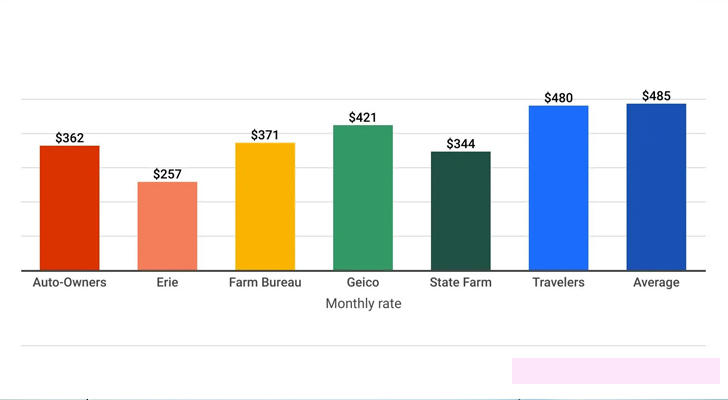Tips for Renewing Auto Insurance for Elderly Individuals: Maintaining Coverage While Saving Costs

As we age, keeping auto insurance effective is crucial for ensuring driving safety. However, rising premiums can make it feel burdensome for many elderly individuals to renew their policies. This guide will help you find effective ways to maintain comprehensive coverage while saving costs during the renewal process.

1. Assess Your Current Insurance Needs
Over time, your driving habits and vehicle usage may change. Before renewing, reassessing your actual needs can help avoid unnecessary coverage and save on costs.
Key Considerations:
• Frequency of Use: If you’re driving less frequently, you might not need as high a level of coverage.
• Mileage Discounts: Some insurers offer discounts for low-mileage drivers, especially for retirees.
• Current Vehicle Value: Assess your vehicle’s current market value to determine if you still need full coverage or collision insurance.
2. Compare Quotes from Different Insurers
Insurance premiums can vary significantly among providers for elderly drivers. Comparing quotes from multiple companies can help you find a reasonably priced policy with comprehensive coverage.
Key Considerations:
• Multiple Comparisons: Obtain quotes from at least three to five different insurance companies for comparison.
• Customer Service and Claims: Look beyond just the price; consider the quality of customer service and the claims process of each insurer.
3. Explore Exclusive Discounts for Seniors
Many insurance companies offer specific discounts for seniors, such as retirement discounts and safe driving rewards. Understanding these discounts can help further reduce your premiums.
Key Considerations:
• Retirement Discounts: If you are retired, many insurers provide discounts to reward low-risk driving behavior.
• Loyalty Rewards: If you have been with the same insurance company for a long time, you may be eligible for loyalty discounts.
4. Consider Increasing Your Deductible
Raising your deductible can significantly lower your premiums, but it also means you'll pay more out of pocket when making a claim. Therefore, carefully weigh the pros and cons before deciding.
Key Considerations:
• Deductible Impact on Premiums: Understand how different deductible options affect your premiums.
• Financial Capability: Ensure you can afford the higher deductible in case of an accident.
5. Take Advantage of Bundled Insurance Services
If you purchase multiple types of insurance (such as home and auto insurance) from the same company, you may receive bundled discounts, helping you save money.
Key Considerations:
• Comprehensive Insurance Plans: Explore the possibility of bundling your home, health, or other insurance with auto insurance.
• Bundling Discounts: Ask about specific discount policies related to bundled insurance.
6. Review Unnecessary Additional Coverages
When renewing, check if your policy includes unnecessary add-ons, such as rental car reimbursement or roadside assistance. Cancelling these can help reduce your premiums.
Key Considerations:
• Additional Coverage Items: List the additional coverages in your policy and consider whether you still need them.
• Tailored Customization: Adjust your policy to reflect your current needs, avoiding payments for unnecessary coverage.
7. Understand No-Claims Discounts
No-claims discounts are rewards offered by insurance companies for safe driving behavior. If you haven’t made a claim before renewal, you can take advantage of this discount.
Key Considerations:
• Clean Driving Record: Ensure you maintain a good driving record, free from major violations or accidents.
• Discount Levels: Understand the levels and conditions of the no-claims discounts offered by your insurance provider.
8. Consult with an Insurance Agent or Expert
If you have questions about your renewal options or want advice on further cost-saving strategies, consulting an insurance agent or expert can help you make informed decisions.
Key Considerations:
• Personalized Guidance: Professionals can provide tailored advice based on your specific situation.
• Policy Updates: They can also help you understand the latest policy changes and discount opportunities.

Case Study: Ms. Zhang’s Renewal Experience
Ms. Zhang, a 67-year-old retired teacher, drives less frequently. During her renewal, she decided to save on costs by increasing her deductible, cancelling unnecessary add-ons, and applying for retirement discounts. By comparing quotes from multiple insurance companies, she ultimately chose a policy that was reasonably priced and offered comprehensive coverage. Ms. Zhang not only lowered her renewal costs but also ensured ample coverage for emergencies.

Conclusion
Elderly individuals can maintain sufficient coverage while saving on costs during the renewal process by reassessing their insurance needs, comparing quotes, and utilizing exclusive discounts. Consulting professionals can further help you find the best renewal strategies, ensuring driving safety and financial stability.
